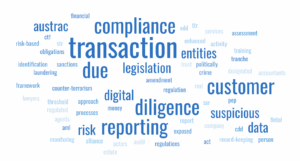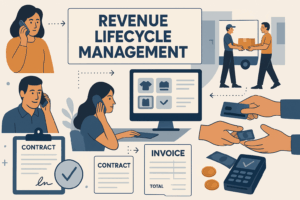Financial Planner CRM Solutions: Fix Data Chaos & Fuel Growth
Financial planner CRM solutions are more than databases — they’re engines that drive better data quality, sharper client insights, and future-ready AI initiatives. In today’s fast-moving, data-driven advisory world, a well-architected CRM can be the difference between a practice that thrives and one stuck in manual, error-prone chaos.
For financial planners, managing complex relationships isn’t just about logging clients — it’s about mapping the intricate web of their financial lives. That means tracking joint ownerships, loan applicants, shareholdings, trusts, SMSFs, beneficiaries, advisers, and even referrals from accountants and lawyers. The right CRM creates a unified view of it all, ensuring you have accurate data at your fingertips.
Common CRM Challenges Financial Advisers Face
📉 Poor data quality
One of the biggest problems financial advisers face is messy, duplicate, or incomplete data. When your CRM isn’t designed for financial planning, advisers often use workarounds or carry duplicate records between offices. This erodes data integrity, disrupts fee attribution, and slows down document generation.
🔗 Disparate systems that don’t talk
Many advisers juggle multiple tools — from XPLAN to spreadsheets — that don’t integrate. This leads to fragmented processes and no single view of a client’s finances, hurting both compliance and client service.
🧐 Verification headaches
In a regulated world, you can’t afford errors. Without a trusted secondary source like Rainmaker or the ASIC register feeding your CRM, it’s tough to verify critical details, increasing compliance and reporting risks.
😫 Paralysis by process
Years of manual processes and old, inconsistent data can feel overwhelming to tackle. Many advisers freeze, not knowing where to start. That’s where an expert can guide you through a step-by-step strategy.
Benefits of Financial Planner CRM Solutions
✅ Unified client view: Manage joint applicants, advisers, Power of Attorneys and more, all under one roof.
✅ Clean data & verification: Sync automatically with trusted sources like ASIC or Rainmaker to maintain data quality.
✅ Efficient fee attribution & FUM tracking: Connect fee calculations, FUM reporting, and document workflows seamlessly.
✅ Better marketing & data collection: Segment clients by life events or products, automate outreach, and ditch insecure email data collection.
✅ Ready for AI: Clean, unified data lays the groundwork for AI-driven tools — from automated compliance checks to client risk profiling.
📊 Manual vs AI-Augmented Document Workflow
| Task | Traditional Workflow | AI-Augmented Workflow | Time Saved |
|---|---|---|---|
| Client Fact Find review | 90 min | 15–20 min | ~70% |
| Generating file notes | 45–60 min | 5–10 min | ~85% |
| SoA pre-population | 2–3 hours | 20–30 min | ~80% |
| Compliance checklist cross-check | 30–45 min | 5 min | ~85% |
| Creating service agreement letter | 1 hour | Instant via Formstack | ~100% |
| KYC/AML data extraction | 45–60 min | 10–15 min | ~75% |
Easy Wins for Financial Planners
✉ Marketing automation
Use your CRM to segment by life stages, products or events, and trigger personalised communications. Move from reactive to proactive relationship building.
🔒 Secure data collection
Stop emailing sensitive client info. A tailored CRM solution gives you secure ways to collect and store critical data.
💼 Seamless client experiences
Integrated tools mean clients enjoy a frictionless journey — from booking to document signing.
🔗 Connecting systems
Make sure your CRM, planning software and comms tools integrate. No more copy-paste errors or missed follow-ups.
🤖 Prepping for AI
Your CRM’s data quality will determine how well future AI tools can work. The cleaner and more connected your data, the more valuable your AI outcomes.
Take the First Step: CRM & AI Audit
If you want to future-proof your firm with the best financial planner CRM solutions, start with an audit. We’ll identify gaps in your data and processes and give you an actionable roadmap to integrate AI and automation the right way.
Next Steps
Ready to clean up your CRM and drive smarter growth? With over a decade of experience in financial services, we’ll help you build an industry-best CRM architecture — aligned to your data, compliance, and acquisition goals.
Get in touch today, and see how we can help a financial planning firm like yours!




